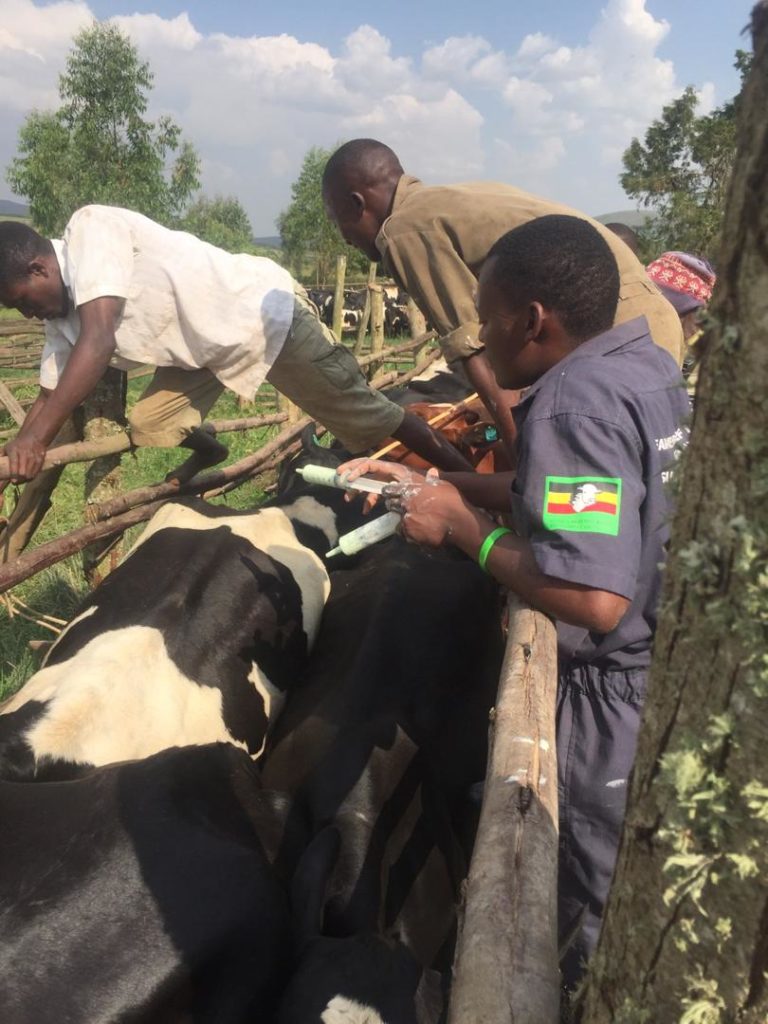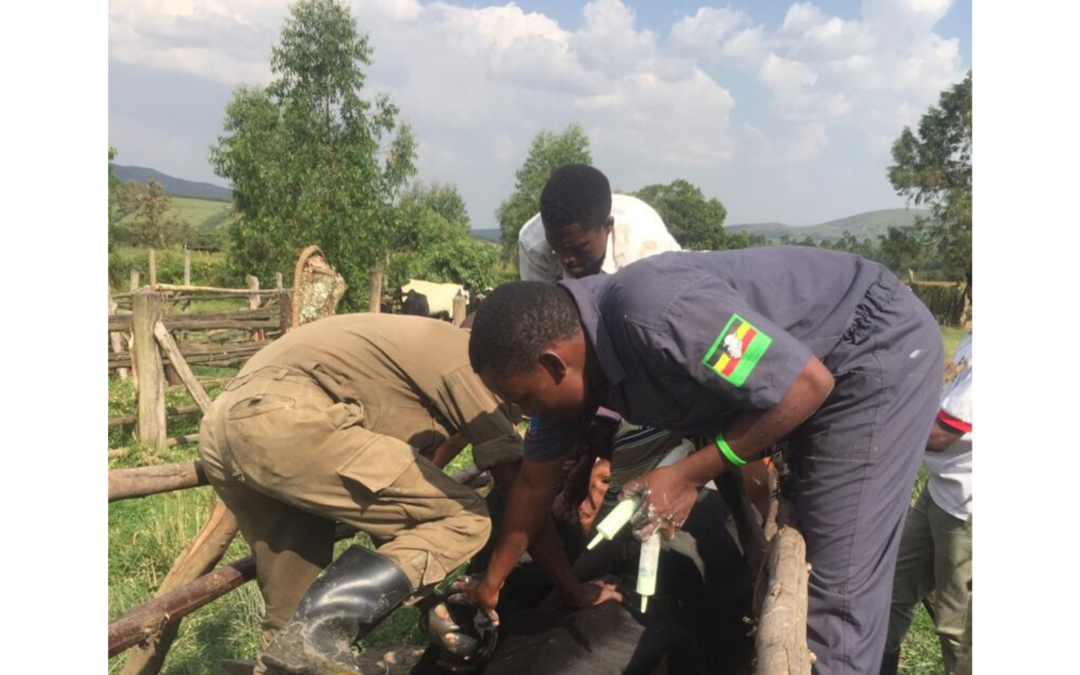Deworming is a routine practice done on a farm after a period of 3-4 months depending on the location of the farm and helminths load in animals, as well as the clinical signs observed for helminthiasis in cattle.
“Helminths are worm-like parasites that survive by feeding on a living host to gain nourishment and protection, sometimes resulting in illness of the host. There are a variety of different helminths from the very large to the microscopic.” (Source: https://www.yourgenome.org/facts/what-are-helminths)
With funding from the European Union through the Farmer Led Beef Livestock Investment and Sustainability project (FALBIIS), UMPCU farmers receive inputs like dewormers and veterinary services in efforts to control animal diseases.

Regular deworming of animals is important as the helminths are controlled; leading to increased production in the animals. There are different drugs used to control helminths however it’s important to use a recommended drug after laboratory fecal analysis for the worms present, thereafter an effective drug can be administered based on the findings.
Luckily Uganda Meat Producers Cooperative Union Ltd (UMPCU), in collaboration with Zoetis has established animal diagnostic laboratories located in Butalangu, Nakaseke district and Nabitanga, Sembabule district which offer services to livestock farmers in the surrounding areas.
The laboratories offer diagnosis of common livestock diseases such as:
- Tick-borne diseases such as babesiosis, theileriosis (East coast fever/locally known as amashiu or amakebe in certain areas), Anaplamsosis (locally called Kashaku in certain areas)
- Gastrointestinal helminths such as cestodes, trematodes, and nematodes
- Anemia
- Diarrhea in calves
- Mastitis
- Tuberculosis
- Trypanosomosis
- Postmortem sample analysis
- Pregnancy diagnosis using a digital scanner
- Technical backstopping
- Vaccinations
- Training
Livestock farmers are encouraged to make use of the above services which are offered at “pocket-friendly’ prices.

